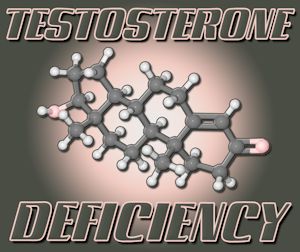Introduction to Semaglutide
Semaglutide, a glucagon-like peptide-1 (GLP-1) receptor agonist, has emerged as a promising therapeutic agent in the management of type 2 diabetes and obesity. Its role in reducing visceral fat, a critical risk factor for cardiovascular diseases and metabolic syndrome, has garnered significant attention in the medical community. This article delves into the science behind semaglutide's efficacy and its success in reducing visceral fat among American males.
Mechanism of Action
Semaglutide functions by mimicking the effects of the naturally occurring incretin hormone GLP-1. It enhances insulin secretion, suppresses glucagon release, and slows gastric emptying, which collectively contribute to glycemic control. Additionally, semaglutide's impact on appetite regulation and energy expenditure plays a pivotal role in its ability to reduce visceral fat. By activating GLP-1 receptors in the brain, semaglutide promotes satiety and reduces caloric intake, leading to weight loss and a subsequent decrease in visceral adipose tissue.
Clinical Evidence Supporting Visceral Fat Reduction
Numerous clinical trials have demonstrated semaglutide's effectiveness in reducing visceral fat. A landmark study published in the *New England Journal of Medicine* showed that participants treated with semaglutide experienced a significant reduction in visceral fat compared to those on placebo. The study, which included a substantial cohort of American males, reported a mean reduction of 14.7% in visceral fat volume after 68 weeks of treatment. These findings underscore semaglutide's potential as a targeted therapy for reducing visceral fat and improving metabolic health.
Impact on Cardiovascular Health
The reduction of visceral fat is not only beneficial for weight management but also crucial for cardiovascular health. Visceral fat is known to be metabolically active and releases pro-inflammatory cytokines, which can lead to insulin resistance and atherosclerosis. By reducing visceral fat, semaglutide helps mitigate these risks, thereby lowering the incidence of cardiovascular events. A meta-analysis of clinical trials involving semaglutide revealed a significant decrease in major adverse cardiovascular events among participants, further highlighting its therapeutic value.
Safety and Tolerability
While semaglutide has shown remarkable efficacy, its safety profile is equally important. Common side effects include gastrointestinal disturbances such as nausea and diarrhea, which are generally mild and transient. Serious adverse events are rare, but patients should be monitored for potential risks such as pancreatitis and thyroid tumors. Overall, semaglutide has been well-tolerated in clinical trials, with a favorable risk-benefit ratio for American males seeking to reduce visceral fat and improve their metabolic health.
Practical Considerations for American Males
For American males considering semaglutide as a treatment option, it is essential to consult with a healthcare provider to assess individual suitability and monitor progress. Lifestyle modifications, including a balanced diet and regular physical activity, should complement pharmacological therapy to maximize the benefits of visceral fat reduction. Additionally, ongoing research continues to explore the long-term effects of semaglutide, ensuring that patients receive the most current and effective treatment strategies.
Conclusion
Semaglutide represents a significant advancement in the management of visceral fat, offering American males a scientifically supported solution to improve their metabolic and cardiovascular health. Its mechanism of action, supported by robust clinical evidence, positions semaglutide as a valuable tool in the fight against obesity and related comorbidities. As research progresses, semaglutide's role in reducing visceral fat is likely to become even more integral to comprehensive health management strategies.
Contact Us Today For A Free Consultation

- Semaglutide's Impact on Beta-Cell Preservation in Diabetes Management for American Males [Last Updated On: February 19th, 2025] [Originally Added On: February 19th, 2025]
- Unraveling Semaglutide: A Significant Breakthrough in Diabetes and Weight Loss Management [Last Updated On: February 25th, 2025] [Originally Added On: February 25th, 2025]
- Unraveling the Odyssey of Semaglutide: A Journey from Laboratory Conception to Life-Altering Therapy [Last Updated On: February 26th, 2025] [Originally Added On: February 26th, 2025]
- Understanding Semaglutide: An In-depth Exploration into the Science of GLP-1 Mechanism [Last Updated On: February 27th, 2025] [Originally Added On: February 27th, 2025]
- Semaglutide: Revolutionizing Diabetes and Obesity Management for American Males [Last Updated On: February 27th, 2025] [Originally Added On: February 27th, 2025]
- Decoding the Metabolic Marvel: Semaglutide [Last Updated On: February 28th, 2025] [Originally Added On: February 28th, 2025]
- In-depth Comparative Analysis - Semaglutide and Other GLP-1 Agonists of 2024 [Last Updated On: February 28th, 2025] [Originally Added On: February 28th, 2025]
- Revolutionizing Diabetic Care: The Semaglutide Paradigm Shift [Last Updated On: March 1st, 2025] [Originally Added On: March 1st, 2025]
- Empowering Transformations: Patients Reclaim Control Over Their Health with Semaglutide [Last Updated On: March 2nd, 2025] [Originally Added On: March 2nd, 2025]
- Exploring Semaglutide: A Comprehensive Overview of Its Role in Weight Management and Obesity Treatment [Last Updated On: March 3rd, 2025] [Originally Added On: March 3rd, 2025]
- Semaglutide: Advancing Treatment for Obesity and Diabetes [Last Updated On: March 4th, 2025] [Originally Added On: March 4th, 2025]
- Exploring Semaglutide's Role in Cardiovascular Disease Management and Diabetes Treatment [Last Updated On: March 5th, 2025] [Originally Added On: March 5th, 2025]
- Semaglutide: Transforming Treatment for Obesity and Type 2 Diabetes in American Males [Last Updated On: March 6th, 2025] [Originally Added On: March 6th, 2025]
- Optimizing Semaglutide Dosage: Personalized Approach for Diabetes and Weight Management Success [Last Updated On: March 7th, 2025] [Originally Added On: March 7th, 2025]
- Unveiling the Dual Pathways of Semaglutide Administration: Oral and Injectable Options for American Males [Last Updated On: March 8th, 2025] [Originally Added On: March 8th, 2025]
- Semaglutide: An Overview for American Men on Diabetes and Weight Management [Last Updated On: March 8th, 2025] [Originally Added On: March 8th, 2025]
- Semaglutide: A Breakthrough in Obesity Management for American Males [Last Updated On: March 9th, 2025] [Originally Added On: March 9th, 2025]
- The Economic Landscape of Semaglutide: Analyzing Cost, Insurance Coverage, and Overall Value for American Males [Last Updated On: March 12th, 2025] [Originally Added On: March 12th, 2025]
- Exploring the Impact of Semaglutide in Real-World Clinical Settings: Insights for American Males [Last Updated On: March 13th, 2025] [Originally Added On: March 13th, 2025]
- Unveiling the Potential of Semaglutide in Managing Metabolic Syndrome: A Detailed Overview [Last Updated On: March 15th, 2025] [Originally Added On: March 15th, 2025]
- Semaglutide: A Breakthrough in Managing Type 2 Diabetes for American Men [Last Updated On: March 16th, 2025] [Originally Added On: March 16th, 2025]
- Semaglutide: Revolutionizing Diabetes and Obesity Management for American Men [Last Updated On: March 17th, 2025] [Originally Added On: March 17th, 2025]
- Semaglutide and Insulin: Complementary or Competitive in Diabetes Management for American Males [Last Updated On: March 18th, 2025] [Originally Added On: March 18th, 2025]
- Semaglutide: A Comprehensive Guide to Appetite Control and Weight Loss in American Males [Last Updated On: March 19th, 2025] [Originally Added On: March 19th, 2025]
- Semaglutide: Enhancing Lipid Profiles and Cardiovascular Health in American Males [Last Updated On: March 19th, 2025] [Originally Added On: March 19th, 2025]
- Semaglutide: A Dual-Action Therapy for Diabetes and Obesity in American Males [Last Updated On: March 20th, 2025] [Originally Added On: March 20th, 2025]
- Semaglutide: A Breakthrough in Weight Loss for American Men [Last Updated On: March 20th, 2025] [Originally Added On: March 20th, 2025]
- Semaglutide: Anti-Inflammatory Benefits for American Males' Health Management [Last Updated On: March 21st, 2025] [Originally Added On: March 21st, 2025]
- Managing Semaglutide Side Effects: A Guide for American Males [Last Updated On: March 21st, 2025] [Originally Added On: March 21st, 2025]
- Semaglutide in Primary Care: Managing Diabetes and Weight in American Males [Last Updated On: March 21st, 2025] [Originally Added On: March 21st, 2025]
- Semaglutide: Managing Diabetes and Obesity in American Males - Benefits and Considerations [Last Updated On: March 21st, 2025] [Originally Added On: March 21st, 2025]
- Personalizing Semaglutide Therapy for American Males: A Comprehensive Approach [Last Updated On: March 21st, 2025] [Originally Added On: March 21st, 2025]
- Semaglutide's Real-World Impact on Diabetes and Obesity in American Males [Last Updated On: March 23rd, 2025] [Originally Added On: March 23rd, 2025]
- Semaglutide: A Promising Treatment for NAFLD in American Men [Last Updated On: March 23rd, 2025] [Originally Added On: March 23rd, 2025]
- Semaglutide's Impact on Kidney Health in American Males with Diabetes [Last Updated On: March 23rd, 2025] [Originally Added On: March 23rd, 2025]
- Semaglutide Therapy Roadmap for American Males: From Consultation to Lifestyle Integration [Last Updated On: March 23rd, 2025] [Originally Added On: March 23rd, 2025]
- Semaglutide: A Comprehensive Solution for Diabetes, Weight, and Heart Health in American Men [Last Updated On: March 23rd, 2025] [Originally Added On: March 23rd, 2025]
- Semaglutide: Transforming Quality of Life for American Males with Metabolic Disorders [Last Updated On: March 23rd, 2025] [Originally Added On: March 23rd, 2025]
- Semaglutide: Managing Diabetes and Obesity in American Males - Clinical Insights [Last Updated On: March 24th, 2025] [Originally Added On: March 24th, 2025]
- Semaglutide: Revolutionizing Diabetes and Obesity Management for American Males [Last Updated On: March 24th, 2025] [Originally Added On: March 24th, 2025]
- Semaglutide: A Game-Changer for Obesity and Health in American Males [Last Updated On: March 24th, 2025] [Originally Added On: March 24th, 2025]
- Semaglutide: Enhancing Sleep Quality in American Males with Diabetes [Last Updated On: March 25th, 2025] [Originally Added On: March 25th, 2025]
- Innovative Semaglutide Delivery Systems: Enhancing Treatment for American Males [Last Updated On: March 25th, 2025] [Originally Added On: March 25th, 2025]
- Semaglutide: Revolutionizing Weight Loss and Health for American Men [Last Updated On: March 25th, 2025] [Originally Added On: March 25th, 2025]
- Semaglutide: A Multifaceted Hope for Aging American Males' Health Challenges [Last Updated On: March 25th, 2025] [Originally Added On: March 25th, 2025]
- Semaglutide: Transforming Health in American Males with GLP-1 Therapy [Last Updated On: March 25th, 2025] [Originally Added On: March 25th, 2025]
- Semaglutide's Anti-Inflammatory Potential: Implications for American Men's Health [Last Updated On: March 25th, 2025] [Originally Added On: March 25th, 2025]
- Semaglutide: Discussing Diabetes and Weight Management with Your Doctor [Last Updated On: March 25th, 2025] [Originally Added On: March 25th, 2025]
- Semaglutide Reduces Inflammatory Markers in American Males: A Comprehensive Analysis [Last Updated On: March 25th, 2025] [Originally Added On: March 25th, 2025]
- Semaglutide: Managing Type 2 Diabetes and Weight Loss via Satiety Hormones [Last Updated On: March 25th, 2025] [Originally Added On: March 25th, 2025]
- Semaglutide Therapy: Optimizing Health with Tailored Nutrition for American Males [Last Updated On: March 25th, 2025] [Originally Added On: March 25th, 2025]
- Genetics Influence Semaglutide Response in American Males: Personalized Medicine Insights [Last Updated On: March 26th, 2025] [Originally Added On: March 26th, 2025]
- Semaglutide: Empowering American Men in Diabetes and Obesity Management [Last Updated On: March 26th, 2025] [Originally Added On: March 26th, 2025]
- Semaglutide's Role in Preventing Diabetes Complications in American Males [Last Updated On: March 26th, 2025] [Originally Added On: March 26th, 2025]
- Semaglutide: A Multidisciplinary Approach for American Males' Health Management [Last Updated On: March 26th, 2025] [Originally Added On: March 26th, 2025]
- Semaglutide's Impact on Adolescent Obesity and Metabolism in Young American Males [Last Updated On: March 27th, 2025] [Originally Added On: March 27th, 2025]
- Semaglutide's Impact on Diabetes, Obesity, and Cardiovascular Health in American Males [Last Updated On: March 27th, 2025] [Originally Added On: March 27th, 2025]
- Semaglutide's Impact on Hormonal Balance in American Males: A Comprehensive Overview [Last Updated On: March 27th, 2025] [Originally Added On: March 27th, 2025]
- Semaglutide: A New Hope for American Men Battling Obesity [Last Updated On: March 27th, 2025] [Originally Added On: March 27th, 2025]
- Semaglutide vs. Other Weight-Loss Drugs: A Guide for American Men [Last Updated On: March 27th, 2025] [Originally Added On: March 27th, 2025]
- Semaglutide and Exercise: A Synergistic Approach for American Males' Health [Last Updated On: March 27th, 2025] [Originally Added On: March 27th, 2025]
- Long-Term Safety of Semaglutide in American Males: A Comprehensive Review [Last Updated On: March 27th, 2025] [Originally Added On: March 27th, 2025]
- Semaglutide Boosts Energy and Vitality in American Males: Mechanisms and Benefits [Last Updated On: March 27th, 2025] [Originally Added On: March 27th, 2025]
- Semaglutide and Telemedicine: Enhancing Diabetes Care for American Males [Last Updated On: March 28th, 2025] [Originally Added On: March 28th, 2025]
- Semaglutide's Impact on Mental Health: Insights for American Males [Last Updated On: March 28th, 2025] [Originally Added On: March 28th, 2025]
- Maximizing Semaglutide Benefits for American Males: Expert Strategies and Insights [Last Updated On: March 28th, 2025] [Originally Added On: March 28th, 2025]
- Semaglutide: Reducing Cardiovascular Risks in American Males with Type 2 Diabetes [Last Updated On: March 29th, 2025] [Originally Added On: March 29th, 2025]
- Semaglutide's Role in Postprandial Glucose Control for American Males with Diabetes [Last Updated On: March 30th, 2025] [Originally Added On: March 30th, 2025]
- Semaglutide: Revolutionizing Obesity and Diabetes Management in American Men [Last Updated On: March 30th, 2025] [Originally Added On: March 30th, 2025]
- Semaglutide Adherence Strategies for American Men: Enhancing Health Outcomes [Last Updated On: March 31st, 2025] [Originally Added On: March 31st, 2025]
- Semaglutide: Transforming Lives of American Men with Diabetes and Obesity [Last Updated On: April 3rd, 2025] [Originally Added On: April 3rd, 2025]
- Semaglutide's Potential in Preventing Diabetes Among American Males: A Review [Last Updated On: April 3rd, 2025] [Originally Added On: April 3rd, 2025]
- Securing Semaglutide: A Guide for American Males on Insurance and Access [Last Updated On: April 3rd, 2025] [Originally Added On: April 3rd, 2025]
- Semaglutide's Impact on Diabetes, Obesity, and Healthcare Economics for American Males [Last Updated On: April 4th, 2025] [Originally Added On: April 4th, 2025]
- Semaglutide's Impact on Lipoprotein Profiles in American Males: Clinical Insights [Last Updated On: April 6th, 2025] [Originally Added On: April 6th, 2025]
- Semaglutide Pharmacokinetics in American Males: Absorption, Distribution, Metabolism, and Clinical Implications [Last Updated On: April 6th, 2025] [Originally Added On: April 6th, 2025]
- Semaglutide and Behavioral Therapy: A New Weight Loss Strategy for American Men [Last Updated On: April 7th, 2025] [Originally Added On: April 7th, 2025]
- Semaglutide: Enhancing Diabetes and Obesity Management in American Men's Health [Last Updated On: April 7th, 2025] [Originally Added On: April 7th, 2025]
- Innovative Weight Loss Solutions: Pharmacology, Technology, and Gut Health for American Males [Last Updated On: April 11th, 2025] [Originally Added On: April 11th, 2025]
- Semaglutide: Boosting Exercise Performance and Metabolic Efficiency in American Males [Last Updated On: April 11th, 2025] [Originally Added On: April 11th, 2025]
Word Count: 535





















